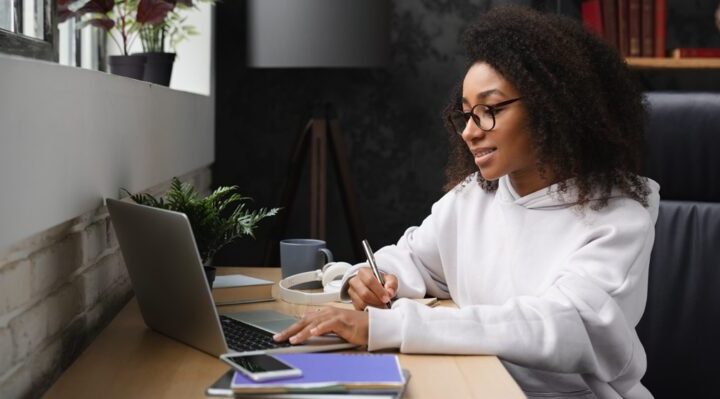Have you ever had a gut feeling—an instinct so strong it stopped you in your tracks? Maybe it was sensing that something wasn’t right in a relationship, feeling wary of a work situation, or simply knowing that you should take a different route home. It’s often called “women’s intuition,” but is it just an old myth, or is there something scientifically real about it? Surprisingly, research shows that gut feelings are not only real but can play a crucial role in decision-making. Let’s explore how these instincts work, why they seem stronger in women, and how you can tune into them for a more empowered life.
What Is a Gut Feeling?
A gut feeling, or “intuition,” is an unconscious process in which your brain processes information and produces a feeling or reaction before you’re consciously aware of it. Think of it as your brain’s fast-track method of warning you without needing time to think things through. When you’re faced with a situation, your mind pulls from past experiences, knowledge, and even subtle cues from the environment to assess the scenario. This is why gut feelings often feel so sudden and intense—they’re like an emotional reflex.
Interestingly, these instincts are often physical too. That “knot” in your stomach, the quickened heartbeat, or even sweaty palms—these are signs that your brain is firing off warning signals. It’s as if your body is sending you a secret message, urging you to pay attention.
Why Women Seem to Have Stronger Intuition
Science suggests that women may experience intuition more intensely than men due to both biological and social factors. Here’s how:
1. Hormonal Differences: Research indicates that estrogen may heighten a woman’s sensitivity to emotional cues, making it easier to pick up on subtle changes in people’s behavior. Estrogen is thought to influence areas of the brain responsible for emotion and memory, which may explain why many women are quick to sense when “something feels off.”
2. Higher Emotional Intelligence: Studies show that women often score higher in emotional intelligence, which includes the ability to read facial expressions, body language, and tone of voice. This helps them recognize underlying emotions and intentions more accurately, feeding into their intuition.
3. Social Conditioning: Society has historically encouraged women to be more emotionally attuned and sensitive to others. As a result, women may develop sharper observational skills, paying close attention to details that men might overlook. Over time, this heightened awareness builds up a powerful intuition that women can rely on.
The Gut-Brain Connection
Our intuition has a lot to do with the gut-brain axis—a communication network linking your gut and brain. The gut contains around 100 million nerve cells, often referred to as the “second brain,” which can influence emotions and reactions. This connection explains why we get physical sensations, like a “gut twist,” when we sense danger or discomfort. It’s a sophisticated alert system telling you when something might not be safe, even before you consciously know why.
How to Harness and Trust Your Intuition
Trusting your gut can be a game-changer, but it requires practice. Here are some ways to strengthen your intuition:
1. Listen to Your Body’s Signals: Take note of how your body reacts in different situations. Does your heart race? Do you feel calm? Paying attention to these physical cues can help you recognize patterns and understand what your gut is trying to communicate.
2. Practice Mindfulness: By slowing down and practicing mindfulness, you can tune into the subtleties of your feelings and thoughts. Meditation, journaling, and even a simple moment of stillness can help you connect with your instincts more deeply.
3. Reflect on Past Experiences: Think back to times when your gut was right. Remembering these moments can build your confidence in trusting your intuition. If you recall when you’ve ignored a gut feeling and regretted it later, that memory might reinforce the importance of paying attention.
4. Start with Small Decisions: Practice using your intuition in low-stakes situations. Should you pick up a book, attend an event, or try a new coffee place? Tuning into these choices can gradually help you build faith in your instincts.
5. Don’t Overthink: Intuition often comes in a flash. When you start overanalyzing, you risk burying that initial instinct under a pile of second guesses. Learn to go with your first reaction, especially when it’s a situation you’ve faced before or are well-versed in.
When to Trust (and Not Trust) Your Gut
While gut feelings can be powerful, they’re not foolproof. Sometimes, biases or past experiences can influence our instincts. For example, if you’ve had a bad experience with a certain type of situation, your gut might send up red flags even when there’s no real danger. It’s important to balance intuition with a bit of reason, especially when it’s a big decision or something outside your usual experience.
In conclusion
Women’s intuition isn’t just an old wives’ tale; it’s a real, science-backed phenomenon that can be incredibly useful in navigating life’s challenges. Learning to trust and strengthen your gut feelings can lead to more confident decision-making, better personal boundaries, and a deeper connection to yourself. So next time you feel that tug in your stomach or a sense that “something isn’t right,” don’t brush it aside. Embrace it as your body’s natural warning system—and remember, sometimes your instincts know best.









